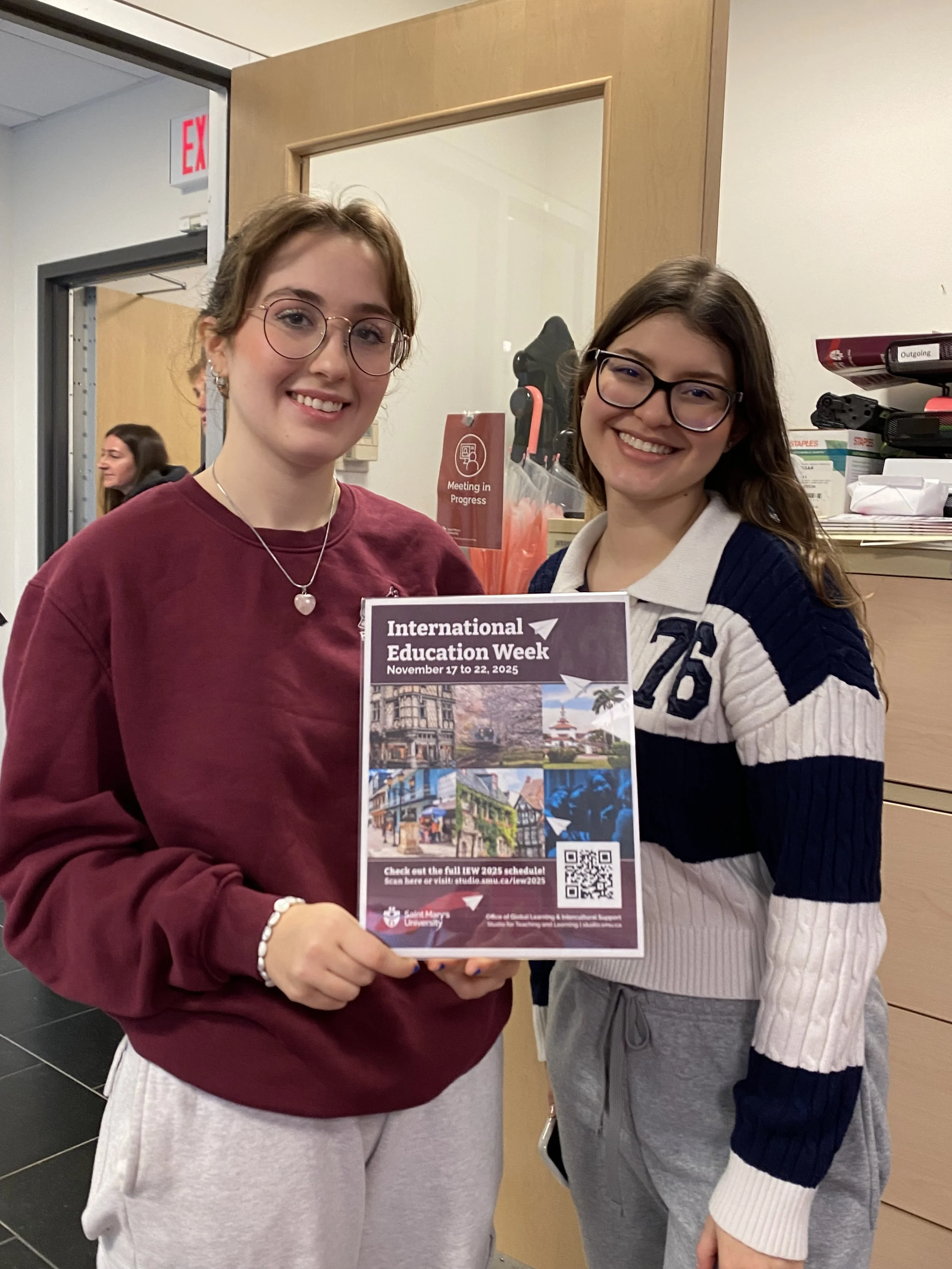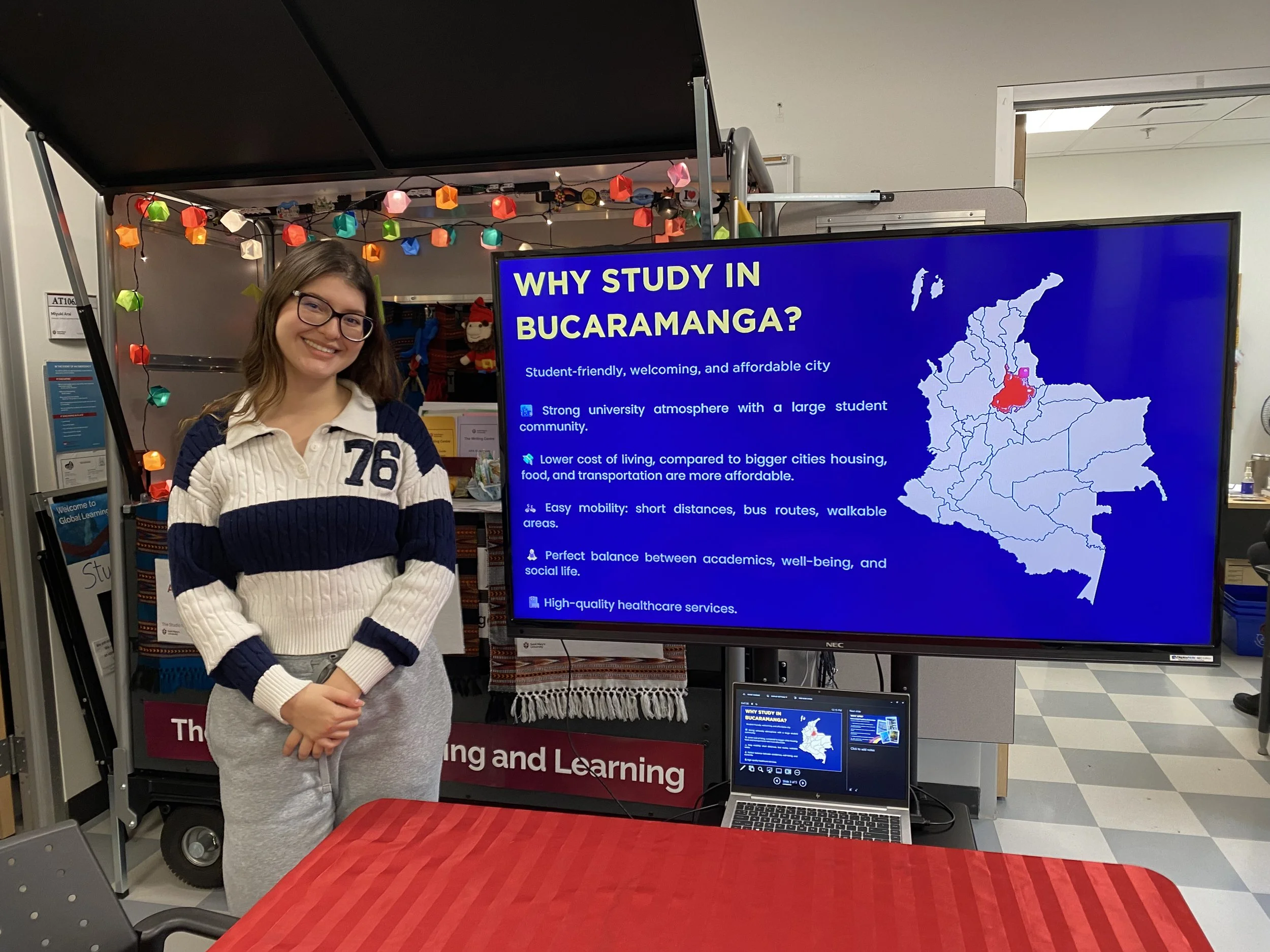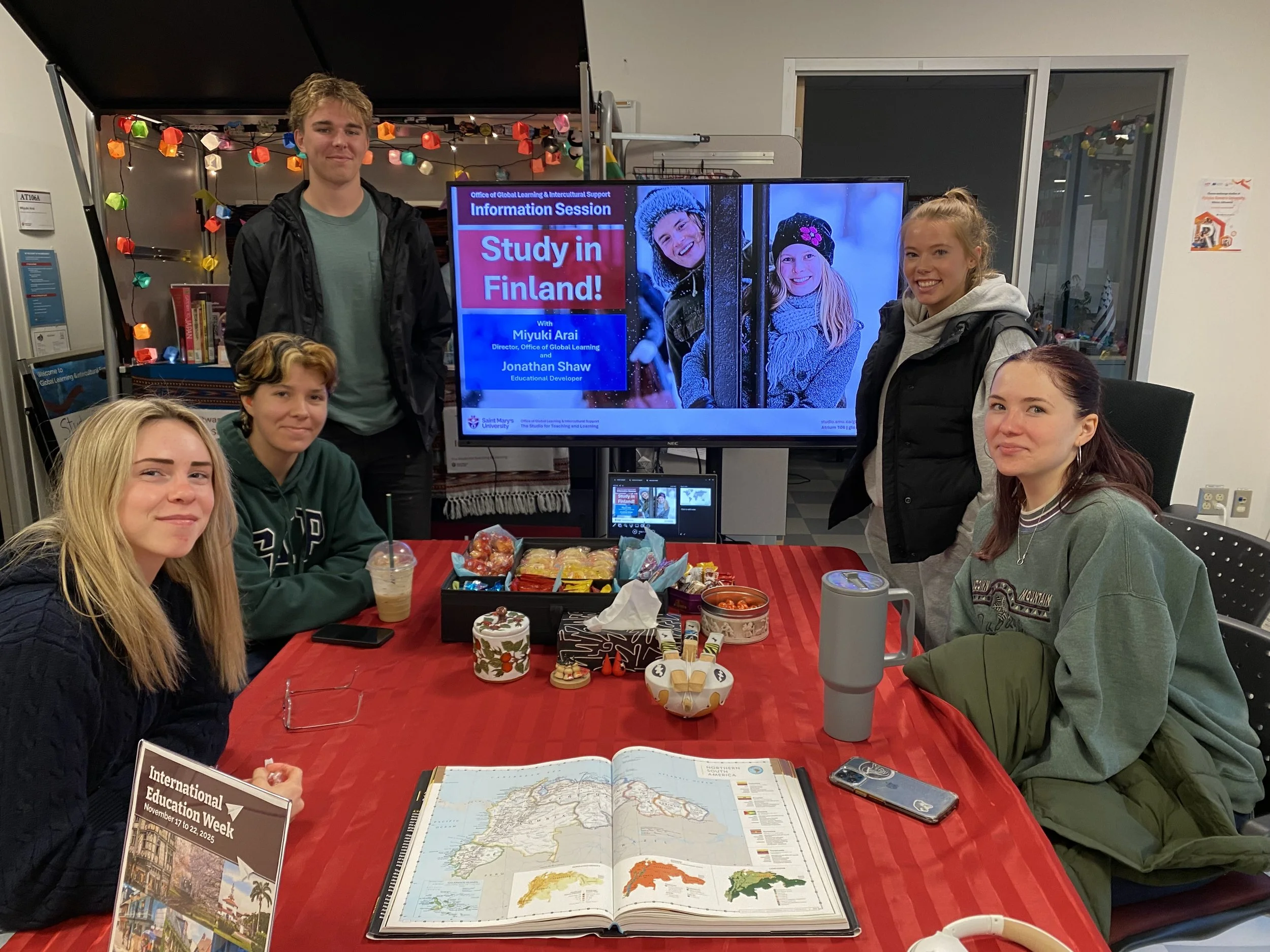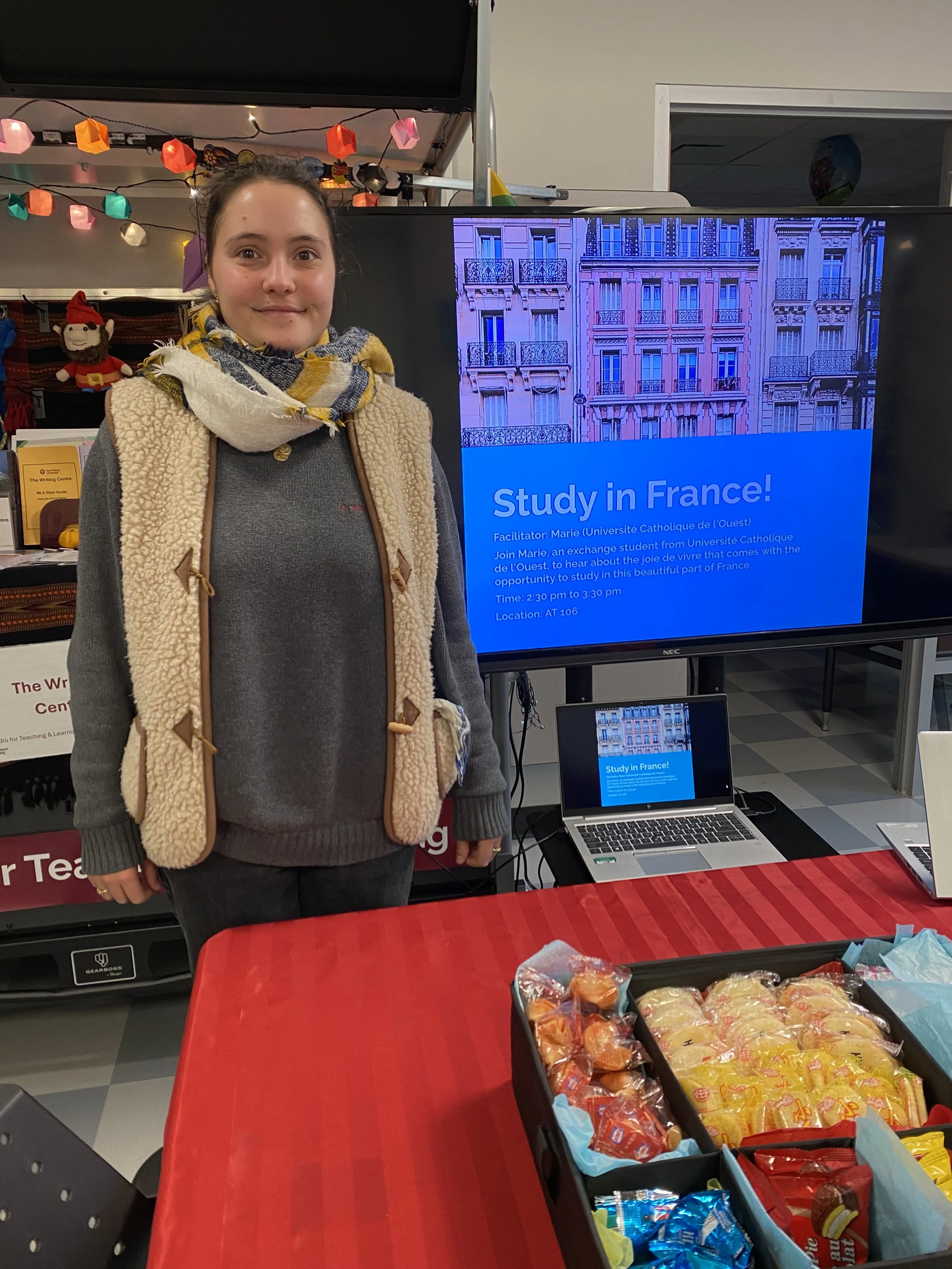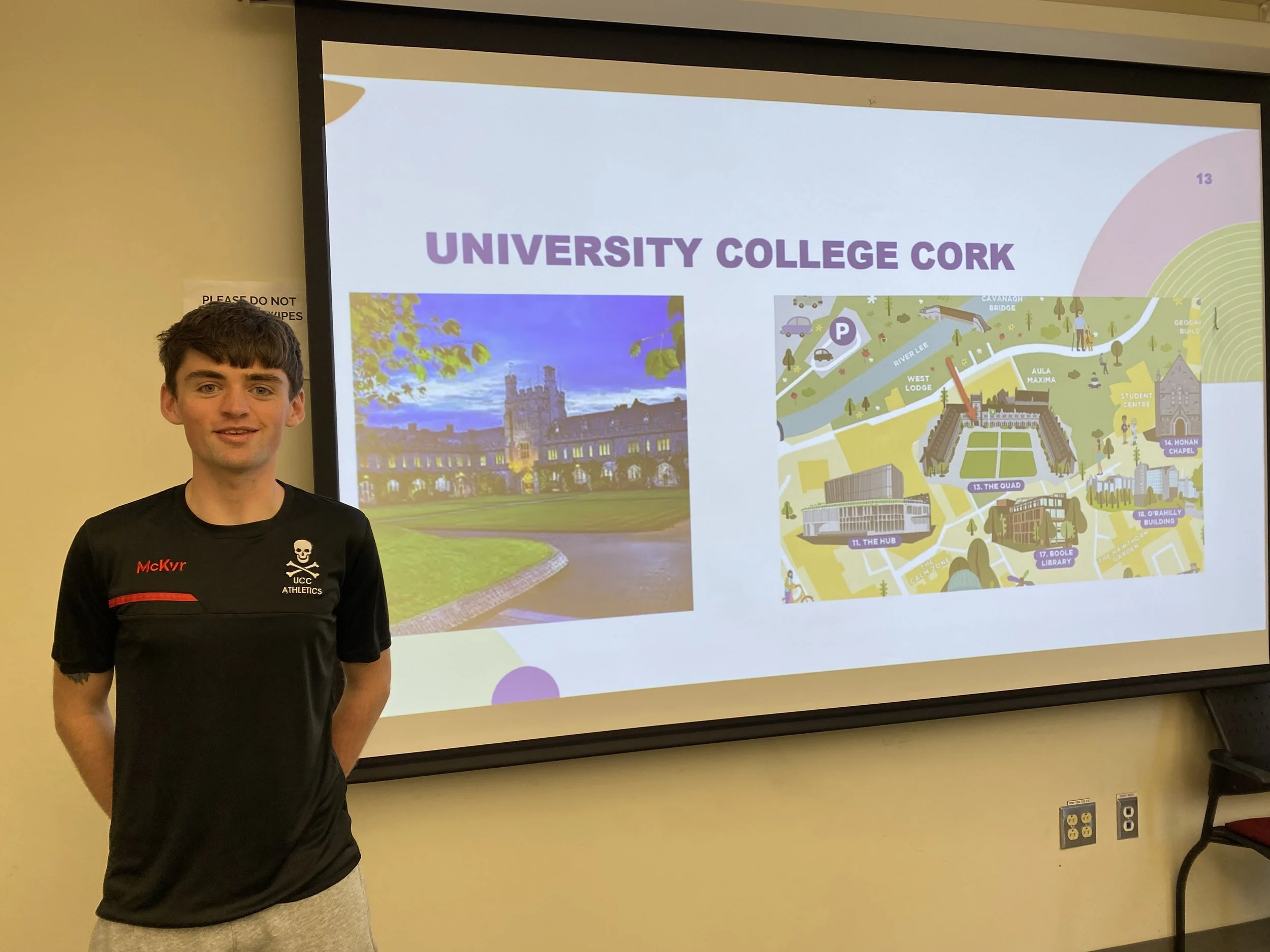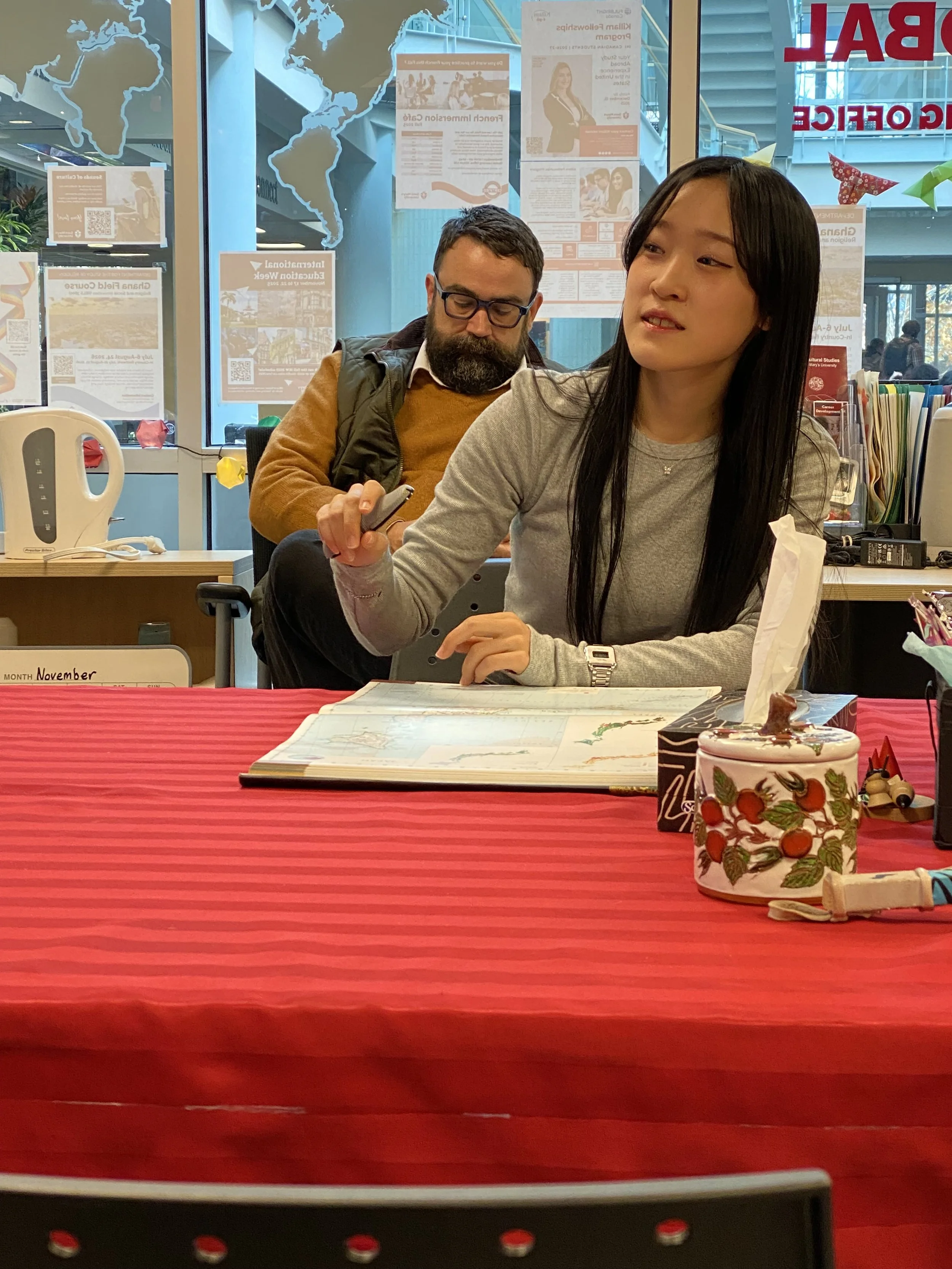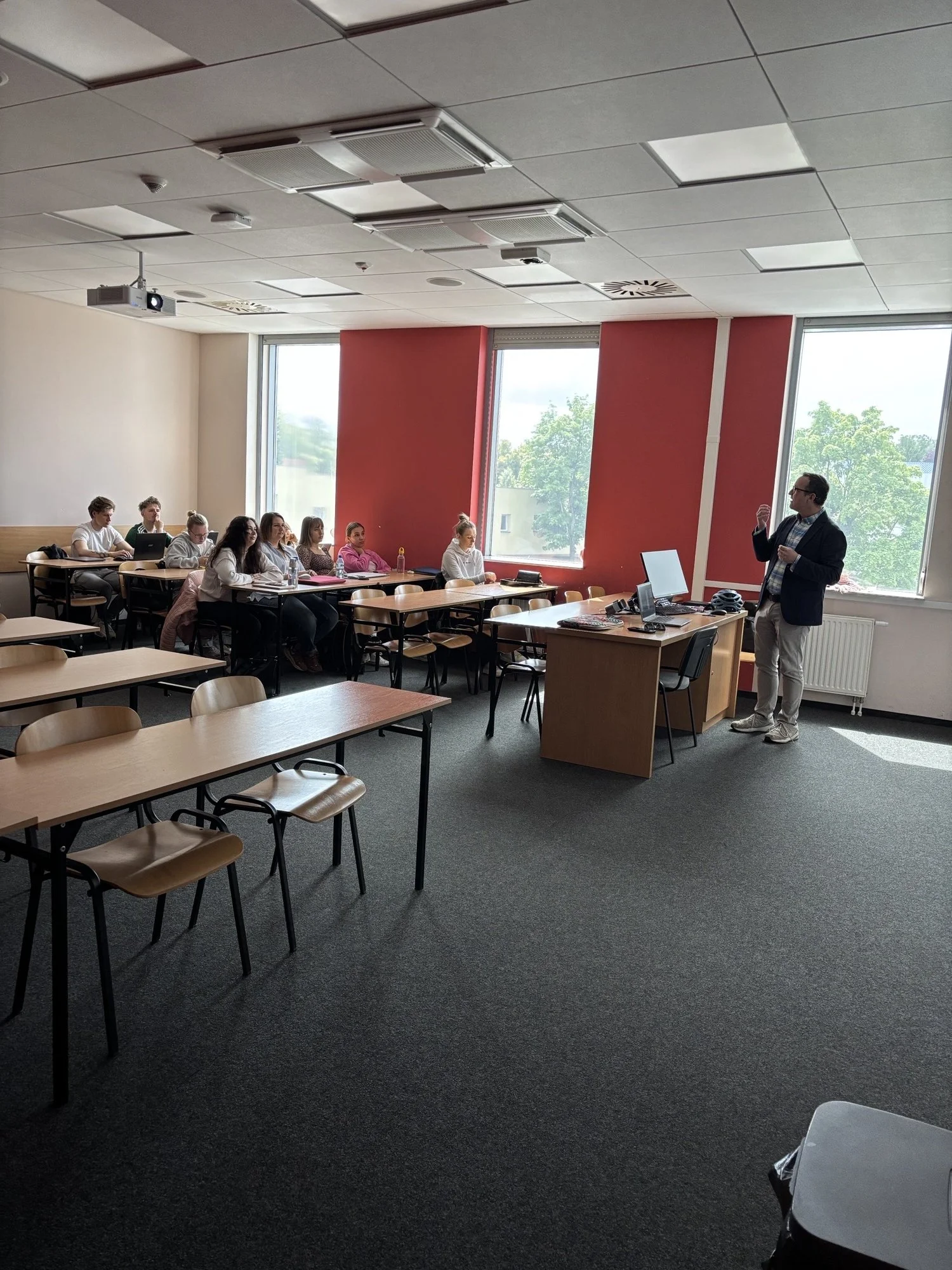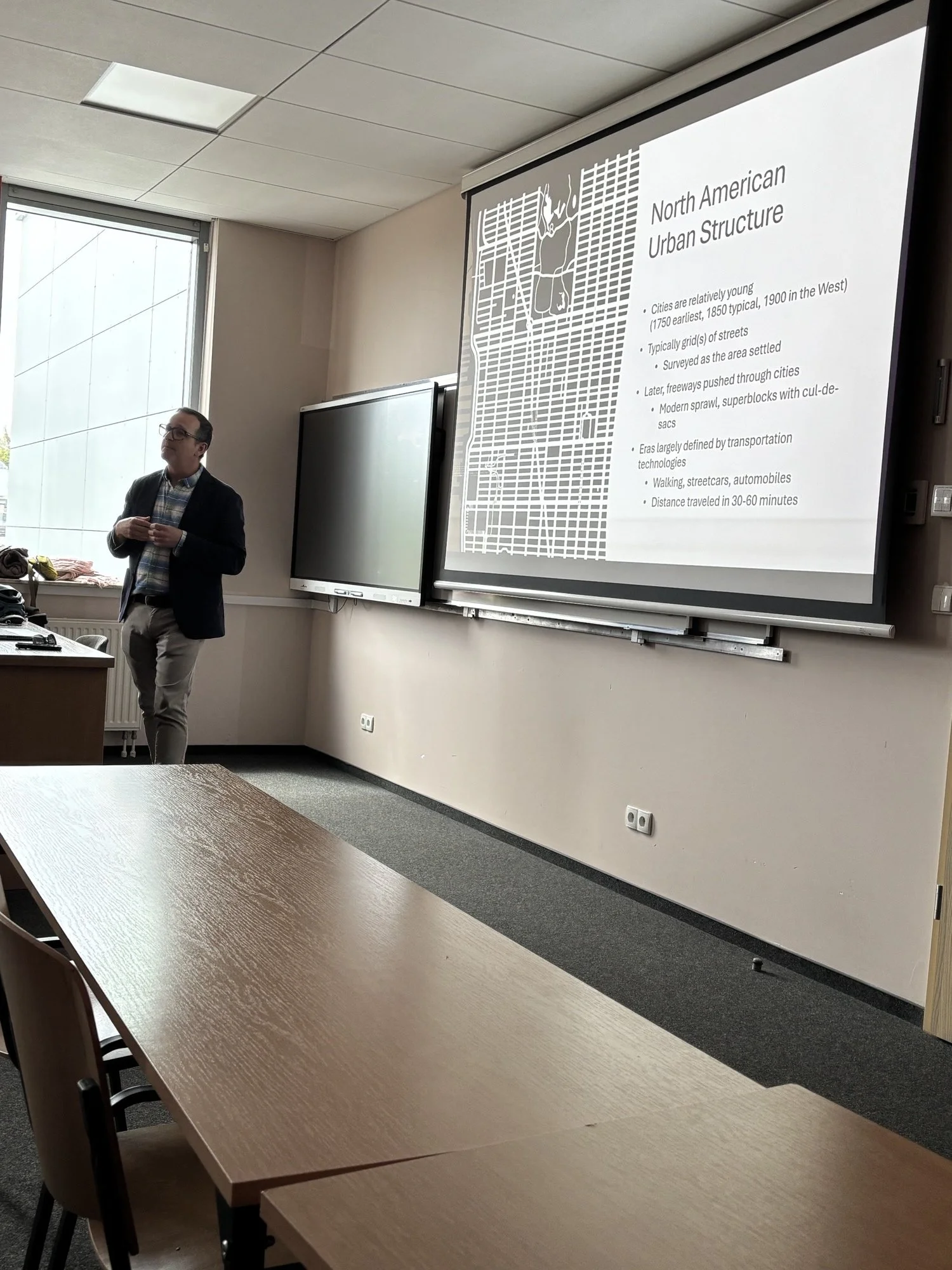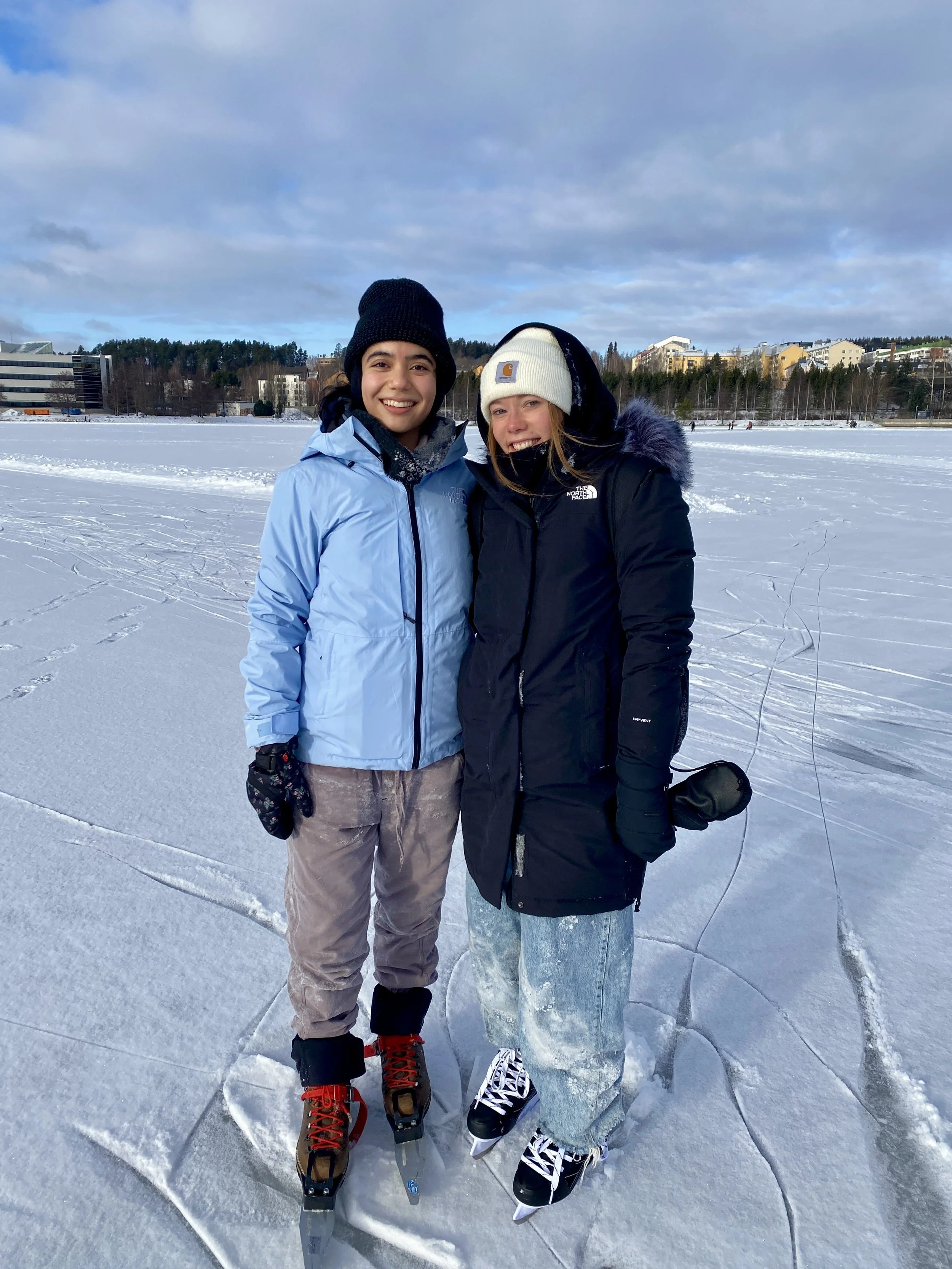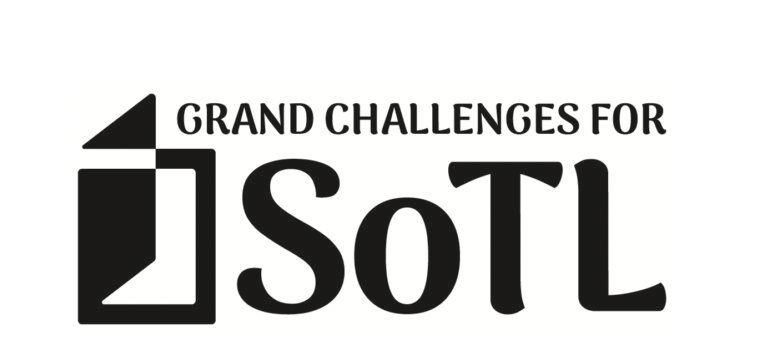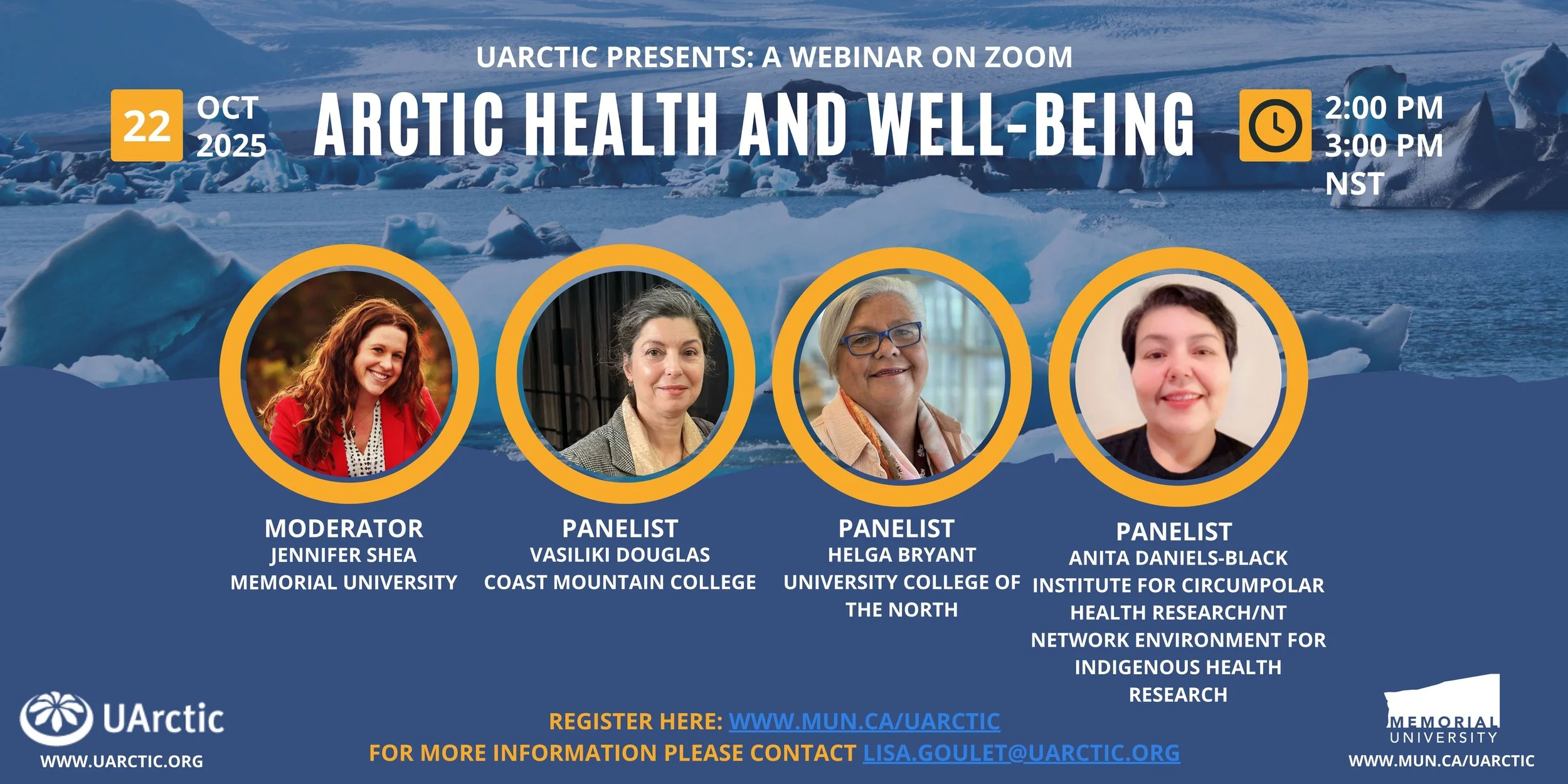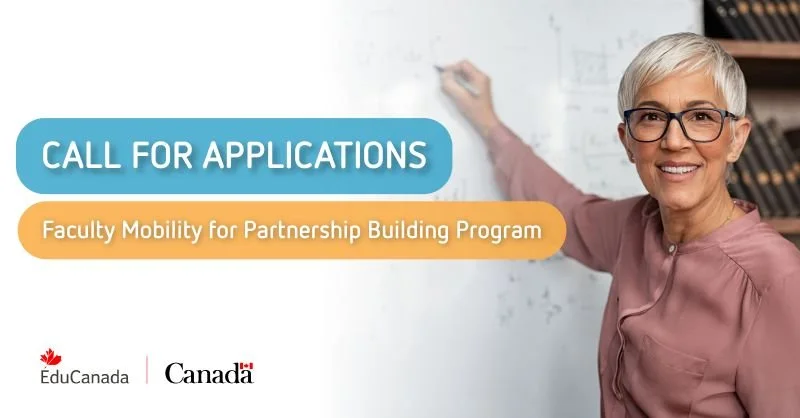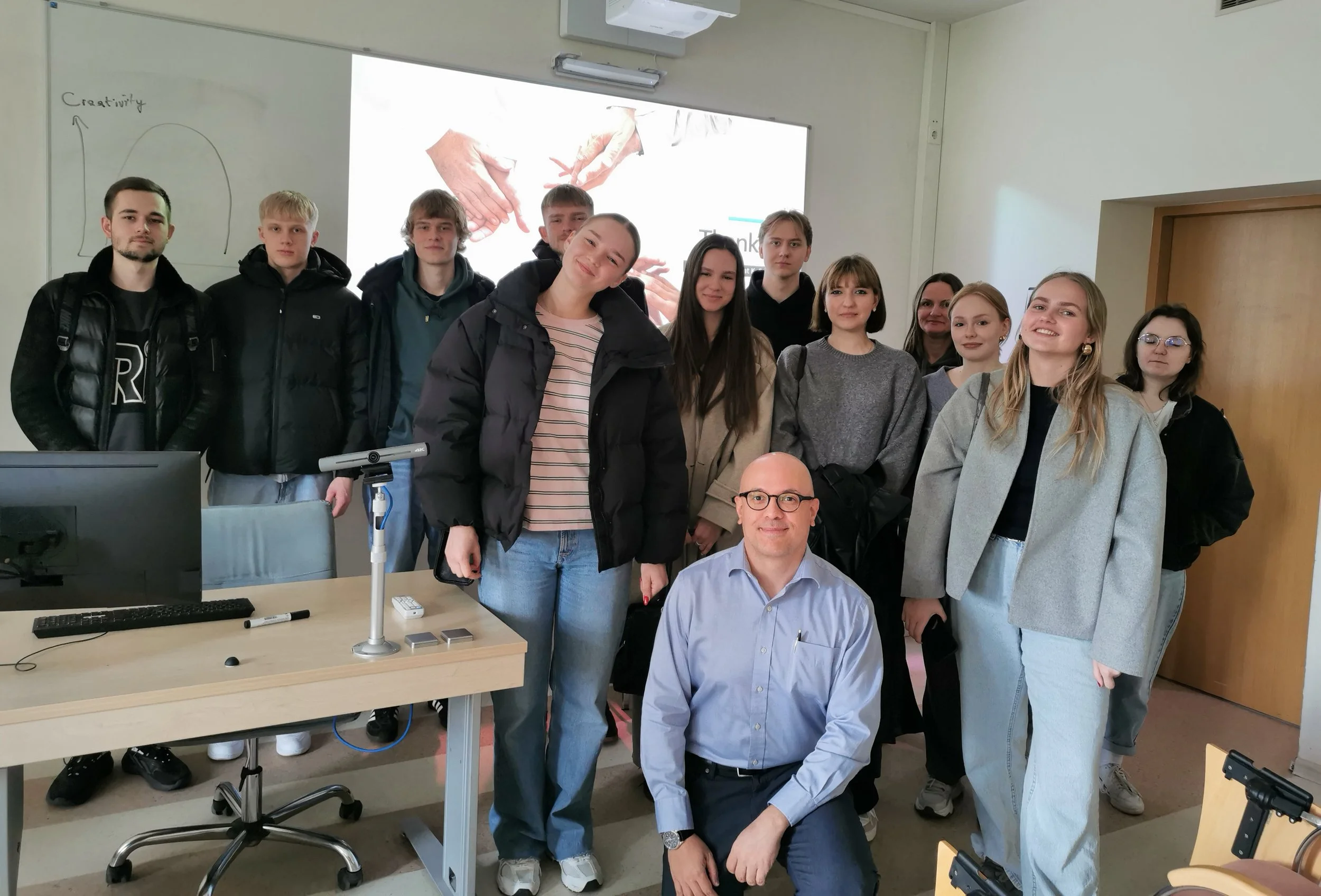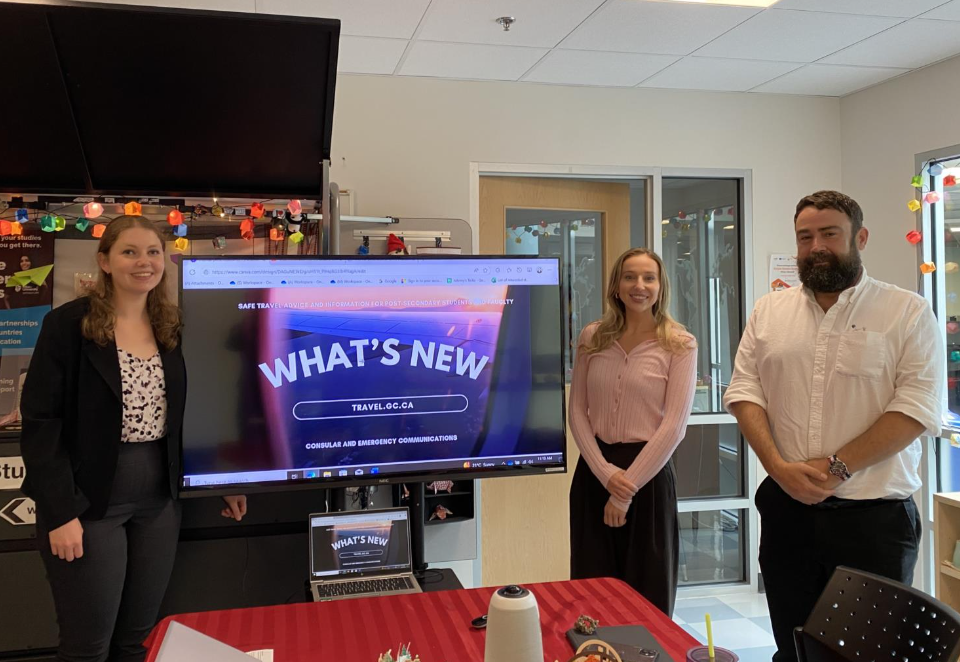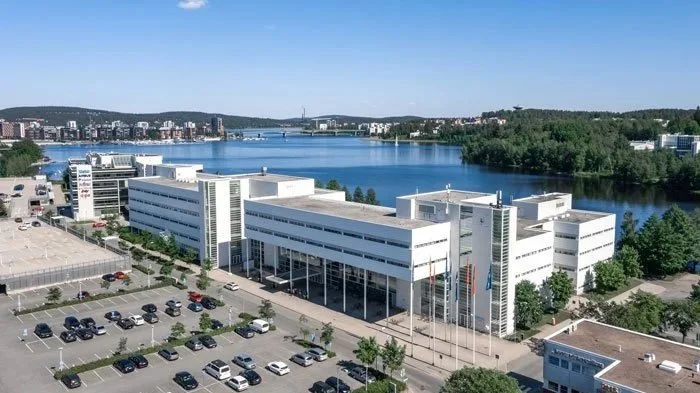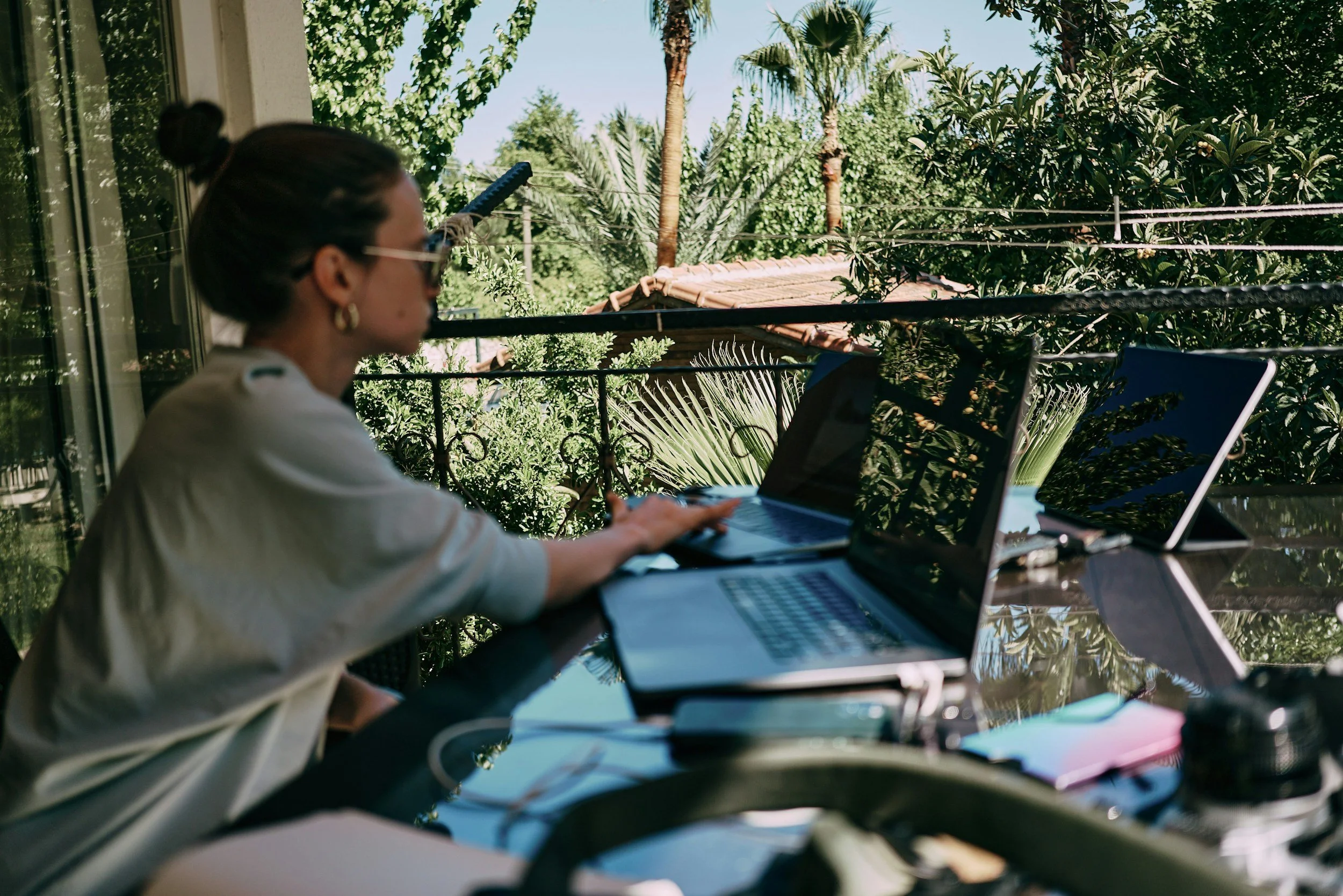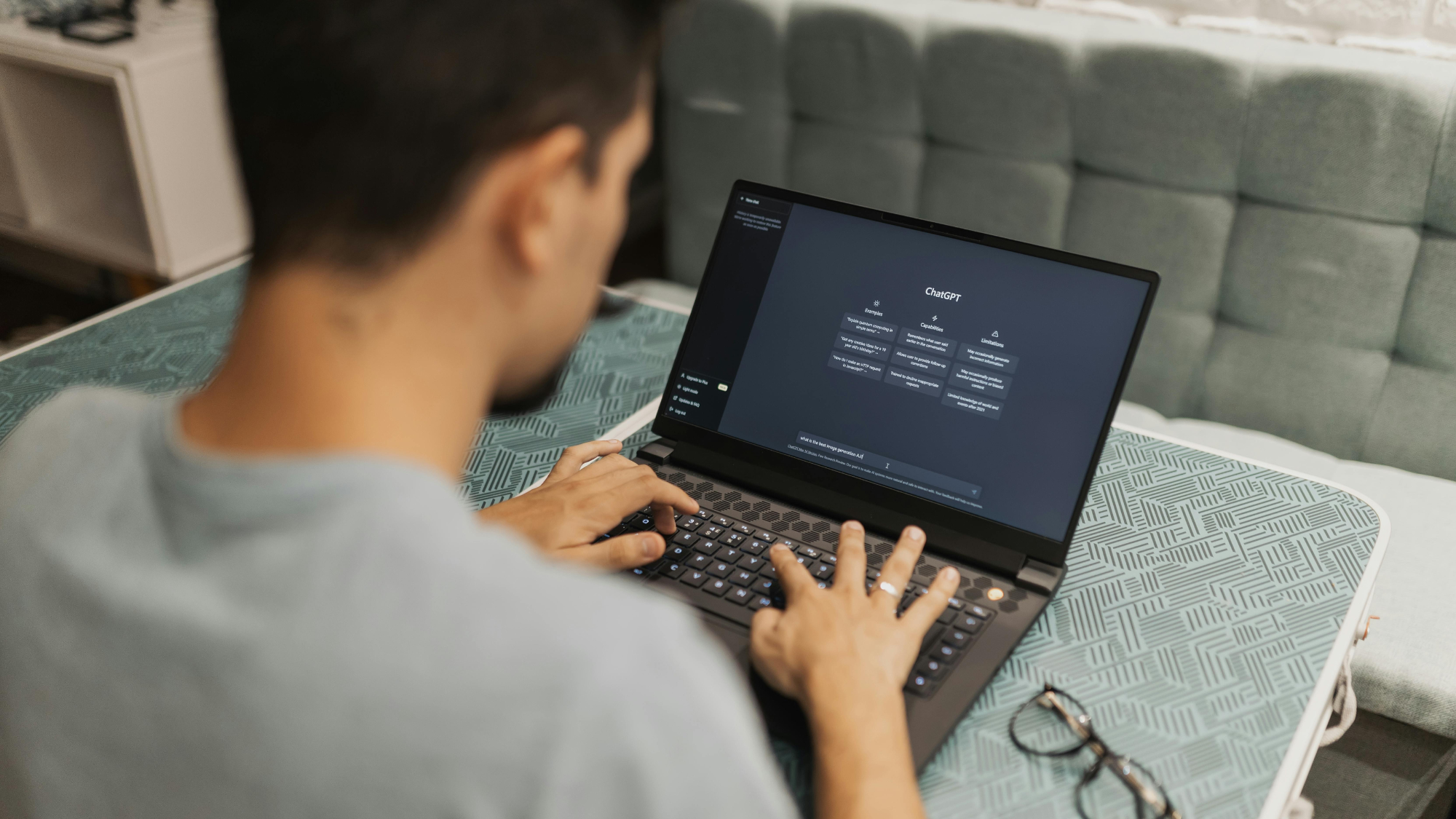One-week teaching mobility within the Erasmus+ KA171 Int’l Credit Mobility Programme
Background
Erasmus+ is a program created by the European Union to support education, training, youth and sport in Europe and provides a variety of funding and opportunities. This program allows institutions in Europe to collaborate with partner institutions outside Europe (i.e., Canada) to further EU’s research and innovation (see background here).
Saint Mary’s University has been successful in working with a selection of SMU’s European partner schools to secure funding for faculty mobility through a call under Erasmus+ Key Action 1 (see here). This funding will allow SMU faculty to undertake a week-long teaching sojourn at those partner institutions.
Objective and expectations of a teaching visit
For teaching mobility, a minimum of 8 hours of teaching needs to be undertaken in a 5-day period.
It is expected that, in addition to teaching activities, there will be varying degrees of discussions related to teaching and/or research with the faculty and staff of the hosting institution during the sojourn. The overall aim of the visiting programme is to create an opportunity where participating faculty can exchange best practices and to explore ways to strengthen collaboration with international partners not only in the faculty’s own field but also at the broader institutional level.
Teaching subject
Interested faculty will first review the partner institution’s program information and ensure that the subject area of interest (in English) is offered at the partner school at the undergraduate and/or the graduate levels. When applying to the SMU Global Learning Office, the faculty applicant will provide a brief overview of teaching activities (for 8 hours) to conduct at the host institution. Once selected, the host institution’s relevant faculty/department will work with the faculty applicant to finalize the teaching schedule.
Funding and travel
Each teaching visit typically consists of 5 days of teaching at the partner institution and 2 days of travel between Canada and the host country. Funding will cover part of international travel and daily stipends (see “Current Opportunities” below). Please note: While the Erasmus+ funding is generous, the amount is typically not enough to cover all expenses. Thus, grant recipients are asked to seek additional funding from other sources as needed to cover the remainder of expenses.
The host institution will provide a grant directly to the participating faculty. The host institution will explain when and how the grant is disbursed.
The participating faculty will make their own travel and accommodation arrangements.
Current opportunities (as of December 2025)
The Global Learning and Intercultural Support Office is accepting applications from SMU faculty who are interested and available for travel between March and May 2026 to teach for a minimum of 8 hours over a 5-day period (unless specified otherwise) in a discipline taught at the partner institution. The Erasmus+ teaching grants are tenable at the following partner institutions:
1. University of Jyväskylä (JYU), Jyväskylä, Finland
Disciplines offered: see here
Activity type: Teaching mobility (8 hours over 5 days)
The amount and number of available Erasmus+ grants to teach at JYU:
2518 EUR (approx. CAD$3800) for 5 days of activity + 2 days of travel (up to 2 grants), consisting of:
· Daily stipend of 190EUR x 7 days (5 days of stay plus 2 days for travel) = 1330EUR
· Travel subsidy =1188EUR
Travel must take place during the host institution’s academic terms: March – early May 2026.
# of grants available: 2
2. LUT University (LUT), Lappeenranta, Finland
Disciplines offered: see here
Activity type: Teaching mobility (8 hours over 5 days)
The amount and number of available Erasmus+ grants to teach at LUT:
2518 EUR (approx. CAD$3800) for 5days of activity + 2 days of travel (2 grants), consisting of:
· Daily stipend of 190EUR x 7 days (5 days of stay plus 2 days for travel) = 1330EUR
· Travel subsidy =1188EUR
Travel must take place during the host institution’s academic terms: March – early May 2026.
# of grants available: 2
Testimonials of past participants
SMU's Global Impact: International Collaboration and Learning in Lithuania
JYU Visit Strengthens SMU’s Global Ties in Science and Education
Innovation and Collaboration: Dr Claudia De Fuentes at International Staff Week in Croatia
Faculty Visit Strengthens International Ties with Polish University
To apply
Interested faculty should email Miyuki.arai@smu.ca and include:
1. the name of the partner institution of interest (rank if multiple)
2. brief explanations of:
a. your overall objectives of the mobility
b. added value of the mobility for you, for the hosting institution, and for SMU
c. content of the teaching program/plan
d. outcomes and impact you hope to achieve
3. long-term interest in internationalization efforts in your teaching, research and service
4. plans/ideas for sharing your experience as a source of inspiration for others upon return
5. potential travel dates and
6. a CV.
Application deadline
Please apply by January 16 2026. The application call will remain open until all funded places are filled.
After your application is submitted
Your application will be reviewed in consultation with the partner institution, and a selection decision will be made within 2-3 weeks. If selected, you will be asked to confirm with the Global Learning Office:
o your plan for covering expenses beyond the value of the Erasmus+ grant
o support of the Dep’t Chair and the Dean for your proposed activity and travel dates
Planning for your visit with the partner institution
The timing, aim and teaching content/schedule of your teaching visit will be finalized in an “Erasmus+ Mobility Agreement (Staff Mobility for Teaching)” which is signed by you, the SMU Global Learning Office and a representative of the receiving partner institution. You may be requested to submit additional supporting documents. The host institution will also explain how and when the grant will be given to you.
You will make your own travel and accommodation arrangements. The Global Learning Office can offer assistance as needed.
Upon completion of your mobility activity
· Complete a post-return survey for Erasmus+
· Complete an activity report for SMU
· Discuss with the Global Learning Office plans for knowledge sharing with the SMU community
Questions?
Any questions and concerns should be directed to Miyuki.arai@smu.ca, Director of Global Learning Services.


